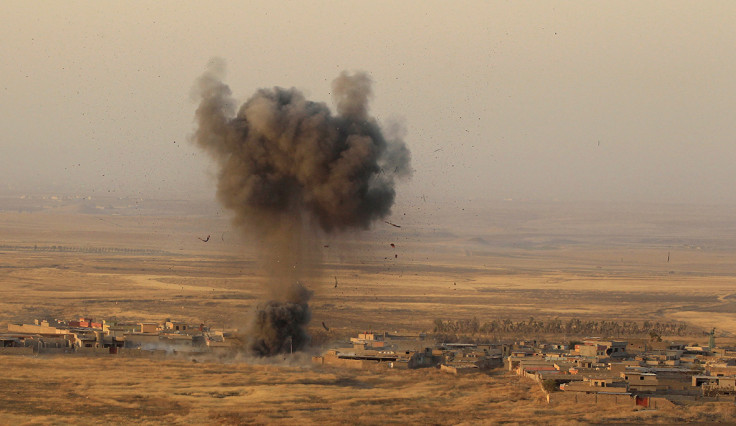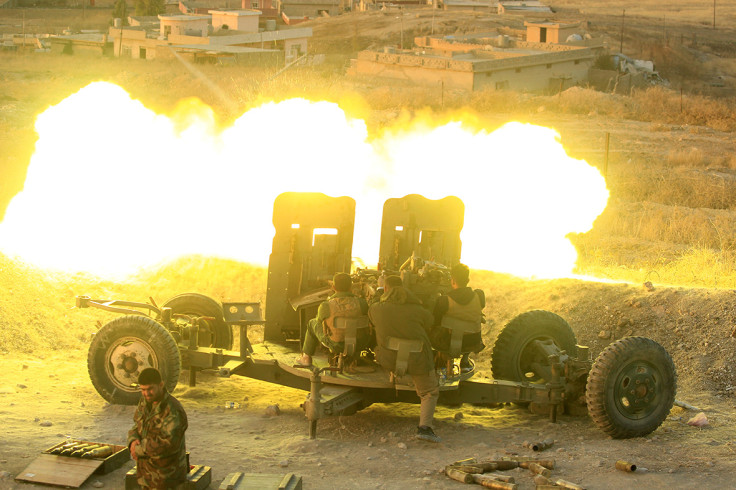Mosul Calling: The rebel radio station that Isis cannot silence
Defiant Alghad Radio connects the people trapped inside Mosul with the outside world.
The Islamic State's (Isis) attempts to isolate Mosul from the outside world have succeeded, but for a small independent radio station that is giving a voice to the civilians trapped in the besieged city and living under the medieval terror of its rulers.
Alghad started broadcasting in March 2015, the first independent radio to air to Mosul after the fall of the city into Isis hands, and has been active ever since.
Alghad Radio has reporters working from inside the city and receives as many as 50 phone calls a day from people living in Mosul offering information on what is going on inside, becoming a point of contact between two otherwise separate worlds.
"Some listeners describe Alghad Radio as the sixth bridge [there are five bridges in Mosul] because we were able to connect the people together, the people who stayed inside Mosul or the ones who left," radio founder Mohammed Al Mawsily told IBTimes UK.
Alghad means "tomorrow" in Arabic. "Hopefully a better tomorrow" Mawsily added. His real identity cannot be disclosed for security reasons, but the name he chose to adopt says enough about him. "Al Mawsily" means "from Mosul" in Arabic.
Mawsily studied abroad and had returned to Mosul only a few months before Isis stormed the city in June 2014. He and his family became some of the thousands of people who fled Islamist occupation. Starting the radio was a way to help the fellow citizens left behind.

"Isis' main focus was on isolating the people completely from the outside world," said Mawsily. The radio station is an act of defiance against Isis rule, a dangerous one. It broadcasts from northern Iraq, but IBTimes UK cannot disclose a more specific location for security reasons.
Isis has tried various ways to silence Alghad, either through intimidation, with a few callers threatening violent action against the radio, or banning the sales of radios, which was imposed shortly after the station began broadcasting. But as those previously bought weren't confiscated, the communication channel remained open. Isis then started targeting its frequency waves.
"We had to change frequency every now and then to avoid being jammed. Later we did install more frequencies to not only broadcast on different frequencies simultaneously, but also to jam Isis radio station Al-Bayan from reaching the Kurdistan Regional Government," said Mawsily.
For the past year and a half, Alghad radio has beamed a range of programmes daily. They have a cultural series called Yardily, which Mawsily said is particularly popular with Mosul refugees. Another slot hosted by a professor with expertise in Islamic theories tackles the weaknesses of Isis's main teachings. Another popular show, whose name translates to "deliver your voice", offers people in Mosul the opportunity to express themselves and discuss what is going on inside the city.

Every since the Iraqi coalition army's offensive to retake the city from Isis began on 17 October, the people calling describe a feeling of anxiety at what the future will bring, as they stack food inside their houses and expect the liberation to take some time. They also describe how Isis is trying to pretend that everything is normal, despite the ongoing fighting in nearby villages.
The people calling the radio say that just as they are getting ready for liberation, so is Isis, placing improvised explosive devices (IEDs) in areas where they expect troops to arrive. People suspect Isis wants to make the city's liberation as messy as possible, involving the destruction of large parts of the city – indeed, some callers report Isis fighters have already burnt down some of the government building.
The radio will keep broadcasting during and after the expected liberation. "We think the main role for the station will be to help in stabilisation. We think the people who are calling us from Mosul and trusting us on their lives will probably listen to us and be positive and be part of the stabilisation," said Mawsily.
As for moving back into the city, he said that will only be an option if the safety is restored as any sleeping Isis cells that may remain in the city represent a threat to the radio. "[The radio will move to Mosul] if we can guarantee the situation will not be back to how it was before the fall," Mawsily concluded.
© Copyright IBTimes 2025. All rights reserved.






















